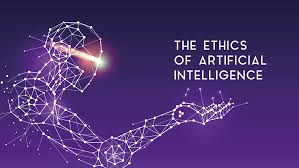In the fast-paced world of technology, the mantra “move fast and break things” echoes through the corridors of Silicon Valley, embodying a culture of relentless innovation and audacious ambition. However, as the tech sector continues to push the boundaries of artificial intelligence (AI), questions of ethics and responsibility loom large on the horizon.
The Clash of Creativity and AI: Scarlett Johansson vs. OpenAI
Recent events, such as the clash between actor Scarlett Johansson and OpenAI, highlight the complexities surrounding AI and creativity. Johansson claimed that her likeness was used without her consent in OpenAI’s ChatGPT product, underscoring concerns about the potential for AI to mimic and eventually replace human creativity.
The Evolution of Tech Giants: From Profit-Driven to Responsible Innovation
While the tech giants of yesteryears may have embraced a “move fast and break things” ethos, today’s landscape is marked by a shift towards responsible innovation. Companies like OpenAI, initially founded as non-profit organizations, now navigate the delicate balance between profit-driven objectives and ethical responsibilities.
Setting Boundaries: The Need for Clear Guidelines and Oversight
As AI technology continues to advance, the need for clear boundaries and oversight becomes increasingly apparent. Policy-makers and industry leaders alike recognize the importance of establishing guidelines to ensure the responsible development and deployment of AI systems, mitigating potential risks and safeguarding against unintended consequences.
The Promise and Perils of AI: Balancing Innovation with Ethics
While AI holds immense promise in revolutionizing various industries, from healthcare to finance, it also presents significant challenges. Issues such as job displacement and algorithmic bias underscore the importance of addressing ethical considerations in AI development and deployment.
Navigating the Future: Towards Responsible AI Development
As we navigate the complex terrain of AI ethics, it is essential to prioritize responsible development practices. Companies like OpenAI have outlined safety processes and commitments, but there remains a need for independent oversight and accountability to ensure adherence to ethical standards.
Embracing Ethical Innovation in the Age of AI
In conclusion, the evolution of AI brings both unprecedented opportunities and formidable challenges. By prioritizing ethics and responsibility, we can harness the transformative power of AI while safeguarding against potential pitfalls, ensuring a future where technology serves humanity’s best interests.




